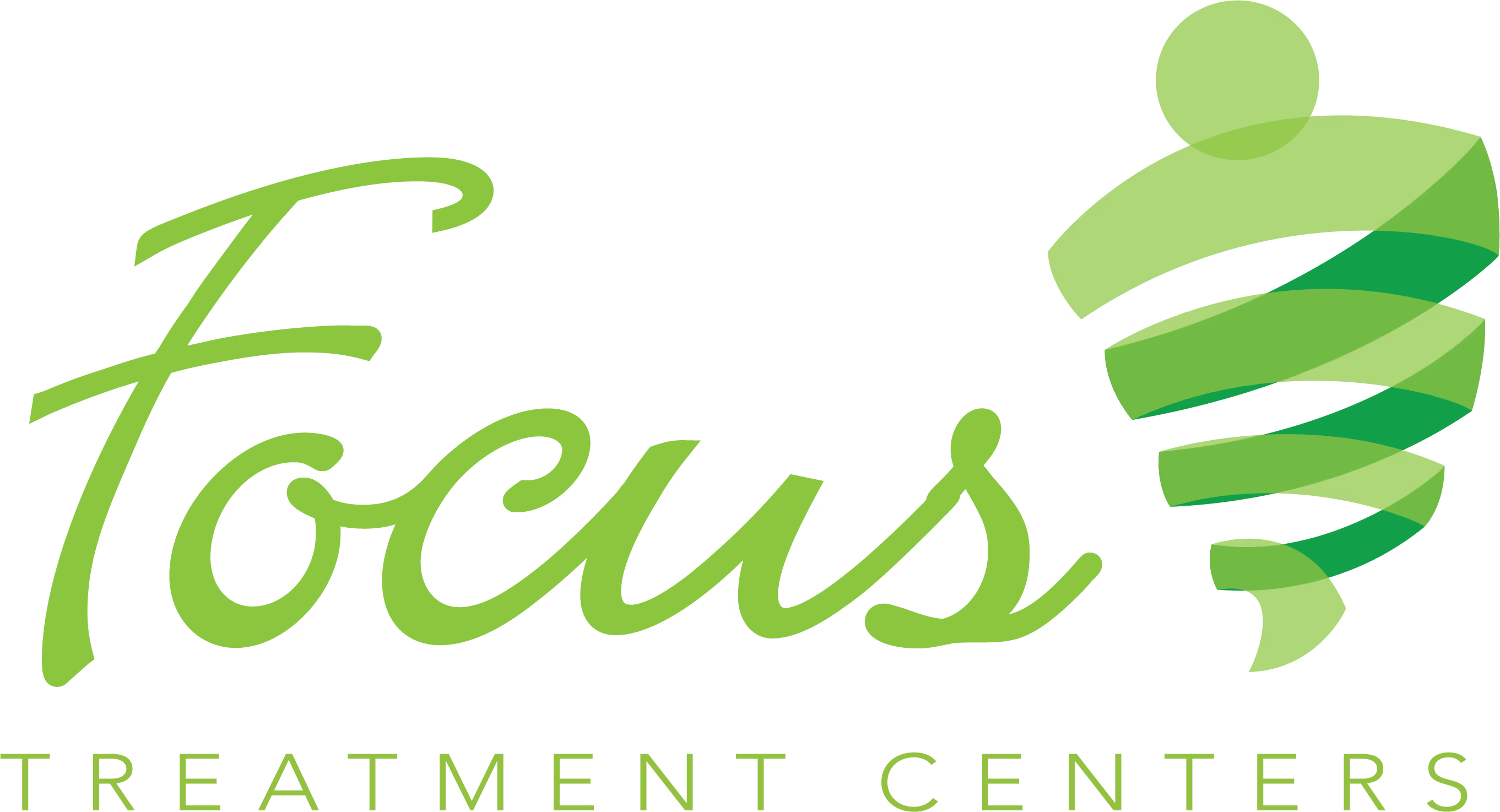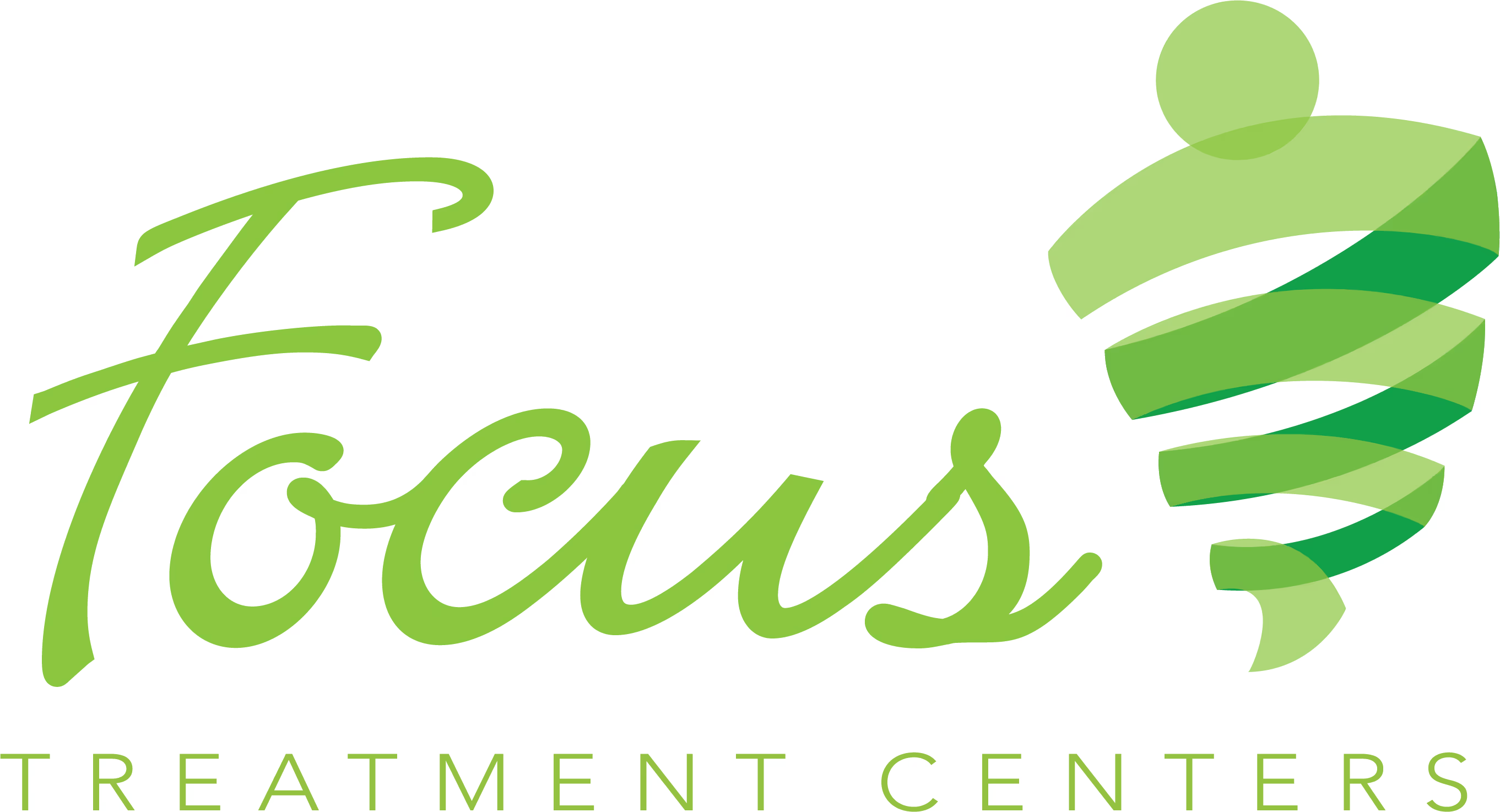10 Questions to Ask Before Entering Rehab
Choosing a treatment program can feel overwhelming. These 10 simple questions will help you understand what a rehab offers, how safe it is, and whether it’s the right fit for you or someone you love.
1. What types of treatment programs do you offer?
Outpatient programs are for people who need support but don’t require 24/7 care. Inpatient programs include highly supervised, structured care during a short-term stay. Detox programs are typically the shortest and help people safely clear substances from their system before beginning recovery.
At Focus Treatment Centers, we offer a residential treatment program similar to inpatient care, but with a less intense structure. Our residential program provides around-the-clock support while still giving you the space you need. While some programs offer 24/7 care, that doesn’t always mean they provide the right amount of structure for every person. Finding a program that fits your specific needs is what matters most.
2. How long does the program usually last?
Intensive Outpatient Programs (IOPs) typically last 7-10 weeks, with three to four sessions each week. At Focus, IOP meets three times per week, either in the morning or evening.
Inpatient programs usually last around a month, ranging from 20–30 days. Residential programs can be longer often one to six months. Detox programs are usually the shortest, lasting about a week.
3. What is a typical day like in treatment?
A “typical day” looks different depending on the program, but most treatment centers follow a structured and supportive schedule. This can include regular meals, therapy sessions, group work, free time, self-care opportunities, and medical treatment.
At Focus, we make sure treatment schedules include time for healing and connection both with staff and with yourself. Different facilities may run their days differently, but the goal remains the same: helping you move toward recovery.
4. Do you treat co-occurring mental health issues?
Many people entering treatment also struggle with mental health issues like depression, anxiety, trauma, or other challenges. That’s why it’s important for treatment centers to have a clear plan for dual-diagnosis care.
Focus uses a whole-person approach designed to treat both mental health and substance use or eating disorders together. Because everyone’s needs are different, having more than one level of care helps people find the right path toward recovery.
5. What is the staff’s training and experience?
Treatment center staff are trained professionals therapists, doctors, nurses, and specialists each with education and experience in their specific fields. Good treatment programs also require proper licensing and credentials.
At Focus, our staff bring years of experience and a deep understanding of what patients are facing. We also offer nutritional counseling and support for building healthy habits during recovery.
6. Does insurance cover treatment, and what are the costs?=
Costs can vary based on your insurance and deductible, but most insurance plans cover treatment. Focus works hard to reduce financial barriers and help you understand what your insurance will cover. Treatment centers often work directly with your situation to help you access the care you need.
7. What kinds of therapy and support are included?
Most treatment programs include a mix of individual therapy, group therapy, family therapy, holistic support, and access to support groups. Therapy helps people heal emotionally, build connections, and understand their struggles on a deeper level.
At Focus, both inpatient and outpatient programs include a blend of evidence-based therapies and supportive services designed to help each person safely move toward recovery.
8. How do you support people after they finish rehab?
Recovery doesn’t end when treatment ends. Many centers, including Focus, offer alumni programs to help individuals stay connected, accountable, and supported.
We also focus on relapse prevention — helping people build skills, routines, and relationships that support long-term recovery.
9. What makes your program different from other rehabs?
Focus Treatment Centers uses a dual-diagnosis treatment model specifically designed for adults struggling with eating disorders or substance use. Our programs are intentionally small, allowing for personalized care and strong support.
Many of our staff members also have lived experience in recovery, which gives them a firsthand understanding of the challenges patients face.
10. How do you involve families in the recovery process?
Family involvement can make a huge difference during treatment. Many programs include family therapy and visiting opportunities to keep loved ones connected and informed.
At Focus, we support families as well as patients. We encourage families to be involved during treatment and offer guidance to help them support their loved one in a healthy, encouraging way.
Asking the right questions makes finding the right treatment program much easier. Focus offers adult residential care, medical detox, IOP, and dual-diagnosis treatment for substance use and eating disorders.
Learn more at focustreatmentcenters.com or call 423-308-2560.











